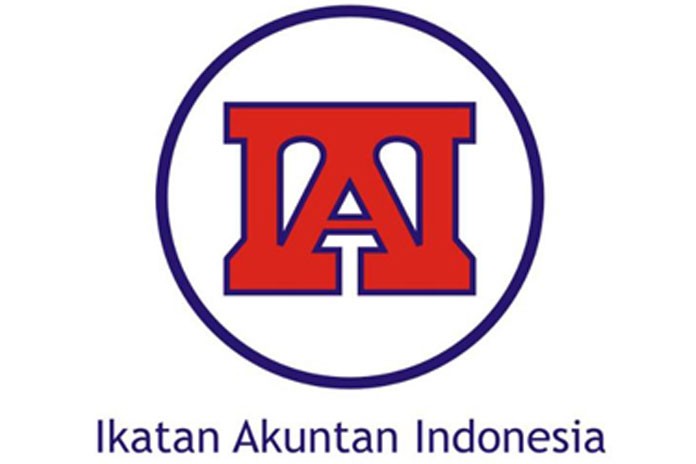SENJANGAN ANGGARAN : STUDI ATAS PENGENDALIAN ANGGARAN, IKLIM KERJA ETIS DAN PERSEPSI KEADILAN PROSEDURAL
Abstract
Abstract
Data was collected by distributing questionnaires using purposive sampling technique to the respondents. Respondents are middle and lower level managers in Banten which of course involved in the budgeting process, with a total of 41 respondents at public organization. Data were analyzed using SEM with the help of SmartPLS version 2.0. Results from this study revealed that the variable Budgetary Control Effectiveness and Ethical Work Climate has a positive and significant impact on the Procedural Justice perception. Variable Ethical Work Climate and Procedural Justice Perception Climate has a negative and significant impact on the Propensity to Create Budgetary Slack, while the variable Budgetary Control Effectiveness no significant effect on the Propensity to Create Budgetary Slack.
Keywords
Full Text:
PDFReferences
Ardianto, Andika. 2009. Perceived Organizational Support Sebagai Pemediasi Pengaruh Keadilan Prosedural, Penghargaan, Dan Dukungan Supervisor Terhadap Komitmen Afektif. Universitas Sebelas Maret.
Asriningati. 2006. “Pengaruh Komitmen Organisasi dan Ketidakpastian Lingkungan Terhadap Hubungan Antara Partisipasi Anggaran dengan Kesenjangan Anggaran”. Simposium Nasional Akuntansi X. Makasar.
Brownell, P. (1985), “Budgetary Systems and the Control of Functionally Differentiated Organizational Activities”, Journal of Accounting Research (Autumn), pp. 502-512.
Brownell, P. and McInnes, M. (1986), “Budgetary Participation, Motivation, and Managerial Performance”, The Accounting Review, pp. 587-600.
Chenhall, R. H. and Brownell, P. (1988), “The Effect of Participative Budgeting on Job Satisfaction and Performance: Role Ambiguity as an Intervening Variable”, Accounting, Organizations and Society, Vol. 13 (3), pp. 225-233.
Cullen, J.B., Parboteeah, K.P. and Victor, B. 2003. The Effects of Ethical Climates on Organizational Commitment : A Two-Study Analysis. Journal of Business Ethics, Vol. 46 No. 2, Pp. 127-41.
Dunk, A. and Nouri, H. (1998), “Antecedents of Budgetary Slack: A Literature Review and Synthesis”, Journal of Accounting Literature Vol. 17, pp. 72-96.
Dunk, Alan S. 1993. The Effect of Budget Emphasis and Information Asymmetry on the Relation Between Budgetary Participation and Slack. The Accounting Review, 68 (2), pp: 400.
Falikhatun. 2007. Interaksi Informasi Asimetri, Budaya Organisasi dan Group Cohesiveness dalam Hubungan Antara Partisipasi Penganggaran dan Budgetary Slack. Symposium Nasional Akuntansi X.
Ghozali, Imam. 2008. Model Persamaan Struktural Konsep dan Aplikasi dengan Program Amos 16.0, Badan Penerbit UNDIP, Semarang.
Halioui K, and Leclere D. 2008. Budgetary Slack and Effectivenees of the Control: A configurational approach.Eur. Med. Econ. Financ. Rev., 3(2): 96-120.
Hartono, J. M. 2009. Konsep dan Aplikasi PLS (Partial Least Square) Untuk Penelitian Empiris. Edisi I, BPFE, Yogyakarta.
Hastuti, Sri dan Wahyuningsari, Hanita. 2010 Partisipasi Penganggaran dan Keadilan Prosedural untuk Meningkatkan Kinerja (Studi PT. Karana Line Surabaya). Jurnal Riset Ekonomi dan Bisnis Vol. 10 No.1.
Kren (1992), “Budgetary Participation and Managerial Performance: The Impact of Information and Environmental Volatility”, The Accounting Review, pp. 511-526.
Kren, L. (1993), “Control system effects on budget slack”, Advances in Management Accounting, Vol. 2, pp. 109-118.
Lal, M., A. S. Dunk and G. D. Smith. (1996), “The Propensity of Managers to Create Budgetary Slack: A Cross-national Re-examination Using Random Sampling”, The International Journal of Accounting, pp. 483-496.
Lau, C. M. and Buckland, C. (2000), “Budget Emphasis, Participation, Task Difficulty and Performance: The Effect of Diversity within Culture”, Accounting and Business Research Vol. 31 (1), pp. 37-55.
Lindquist, T. M. (1995), “Fairness as an Antecedent to Participative Budgeting: Examining the Effects of Distributive Justice, Procedural Justice and Referent Cognitions on Satisfaction and Performance”, Journal of Management Accounting Research, Vol. 7, pp. 122-147.
Magner, N. R. and Welker, R. B. (1994), “The Effects of Differential Perceptions of Formal Budgetary Procedures on Affective Employee Responses”, British Accounting Review, Vol. 26, pp. 27-41.
Magner, N., Welker, R. B. and Campbell, T. L. (1996), “Testing a Model of Cognitive Budgetary Participation Processes in a Latent Variable Structural Equations Framework”, Accounting and Business Research, Vol. 27 (1), pp. 41-50
Maiga, Adam S dan Jacobs, Fred A. 2007. Budget Participation’s Influence on Budget Slack: The Role of Fairness Perceptions, Trust and Goal Commitment. Journal of Applied Management Accounting Research Vol. 5 · Number. 1 · 2007
Maria, Delli dan Nahartyo, Ertambang. 2011. Influence of fairness Perception and trust on Budgetary slack: study experiment on Participatory budgeting context. Tesis. Yogyakarta: Universitas Gajah Mada.
Merchant, K. A. (1985), “Budgeting and the Propensity to Create Budgetary Slack”, Accounting, Organizations and Society, Vol. 10, pp. 201-210.
Milani, K. (1975), “The Relationship of Participation in Budget-setting to Industrial Supervisor Performance and Attitudes: A Field Study”, The Accounting Review, Vol. 50 (2), pp. 274-284.
Nugroho, Setyo. 2011. Pengaruh Ketidakpastian Tugas, Efektivitas Pengendalian Anggaran dan Job Relevant Information Terhadap Kecenderungan Menciptakan Budgetary Slack Pada Organisasi Sektor Publik. Jurnal Ilmiah Mahasiswa FEB. Universitas Brawijaya.
Oktorina, Megawati dan Soenarno, Yanuar Nanok. 2013. Effect of Budget Participation, Budget Emphasis, and Fairness Perception on the Budgetary Slack with Managerial Trustworthy Behavior as Moderating Variable at Manufacturing Company in Jakarta. The 2nd IBSM, International Conference on Business and Mangement.
Ozer, Gokhan dan Yılmaz, Emine. 2011. Effects of Procedural Justice Perception, Budgetary Control Effectiveness and Ethical Work Climate on Propensity to Create Budgetary Slack. Business and Economics Research Journal Volume 2 Number 4 2011 pp. 1-18
Perez, L. and Robson, K. (1999), “Ritual Legitimization, Decoupling and the Budgetary Process: Managing Organizational Hypocrisies in a Multinational Company”, Management Accounting Research Vol. 10, pp. 383-407.
Pitasari, Kadek Krisna Aris, Sulindawati, etc. 2014. Pengaruh Kejelasan Sasaran Anggaran dan Keadilan Prosedural terhadap Sejangan Anggaran (Budgetary Slack) pada SKPD berupa Dinas di Pemerintah Kabupaten Klungkung. e-Journal Universitas Pendidikan Ganesha Volume 2 No.1 -Tahun 2014.
Ramdeen, Collin, etc. 2007. An Examination of Impact of Budgetary Participation, Budget Emphasis, and Information Asymmetry on Budgetary Slack in the Hotel Industry.
Shields, M. and Young, S.M. (1993), “Antecedents and Consequences of Participative Budgeting: Evidence on the Effects of Information Asymmetry”, Journal of Management Accounting Research, Vol. 5, pp. 265-280.
Stede, Wim A. V., 2000, The Relationship Between Two Consequences of Budgetary Controls: Budgetary Slack Creation and Managerial Short-term Orientation, Accounting Organization, and Society, 25.
Triadhi, Nyoman Andika. 2014. Pengaruh Preferensi Risiko, Etika dan Partisipasi Penyusunan Anggaran pada Senjangan Anggaran Pendapatan di Pemerintah Provinsi Bali. E-Jurnal Ekonomi dan Bisnis Universitas Udayana 3.6 (2014) :345-355.
Wentzel, K. (2002), “The Influence of Fairness Perceptions and Goal Commitment on Managers’ Performance in a Budget Setting”, Behavioral Research in Accounting, Vol. 14, pp. 247-271
DOI: http://dx.doi.org/10.35448/jrat.v9i1.4277
Refbacks
- There are currently no refbacks.
pISSN 1979-682X eISSN 2528-7443
Jurnal Riset Akuntasi Terpadu (JRAT) is licensed under a Creative Commons Attribution 4.0 International License







